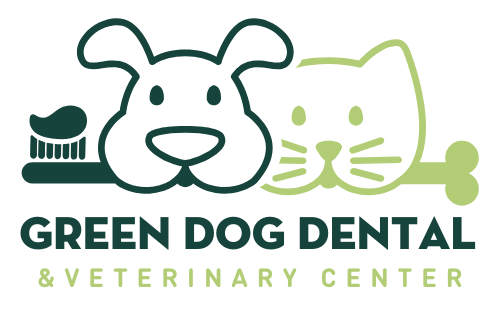How do vaccinations impact the health and well-being of a dog?
Vaccinations play a crucial role in protecting dogs from infectious diseases they may encounter while playing or socializing with other dogs. By exposing dogs to small amounts of these diseases through vaccinations, their immune system can safely build up immunity to prevent them from getting sick.
Dr. Claudia Lau
Green Dog Veterinary Center
Are vaccinations required by law?
Yes, rabies vaccination is usually required by law, especially in California. Another core vaccine that dogs need is the DAPP combination vaccine.
Does my dog's lifestyle factor into what vaccinations my veterinarian will recommend?
Yes, there are core and non-core vaccines. Core vaccines are recommended for every dog, regardless of their lifestyle. Non-core vaccines may be recommended based on factors like how often your dog goes boarding or encounters unfamiliar dogs. These non-core vaccines are in addition to the core schedule.
What are the core vaccinations?
The core vaccinations include the DAPP vaccine, which contains a combination of different vaccine strains, such as distemper and parvovirus. Rabies is another core vaccine.
How soon should I get my dog vaccinated?
Puppies should receive their first series of vaccines at eight weeks of age.
Do I really need to avoid allowing my puppy to socialize with other dogs until they're fully vaccinated?
It's important to protect puppies until they receive their final series of vaccines at 16 weeks of age, as their immunity is not yet fully developed. As much as we want to let our puppies play with other dogs when they're young, it's crucial to prioritize their health first.
Why is it important to avoid missing a dog vaccination?
Regular vaccination boosters are necessary to maintain your dog's immunity against infectious diseases. Missing these boosters can make your dog vulnerable to diseases they are no longer immune to. So, it is essential to keep up with the regular vaccination schedule.
What are the typical puppy and dog vaccination schedules?
For puppies, the first series of vaccines (DAPP) is given at eight weeks of age, followed by another series four weeks later, and a final series at 16 weeks of age. Adult dogs usually receive vaccinations on an annual basis.
What diseases are prevented with vaccination?
Common diseases prevented by vaccines include parvovirus, kennel cough (Bordetella), influenza, and leptospirosis.
Are vaccinations painful for my dog?
Vaccinations use a small needle that dogs typically don't feel at all when injected under their skin. The procedure only causes a minor prick.
Can my dog get cancer from a vaccination?
No, there is no evidence to suggest that vaccinations can cause cancer in dogs.
Can my dog have an allergic reaction to a vaccine?
Allergic reactions are rare in dogs, and full-blown allergic reactions are even rarer. However, some dogs may experience minor side effects, such as swelling at the injection site, fever, or drowsiness after a vaccination.
Are certain dog breeds more prone to adverse reactions to vaccinations?
Not necessarily. Smaller dogs may be more prone to side effects like fever or mild rashes, but generally, side effects are rare from vaccinations.
Does my senior dog still need core vaccinations?
Yes, senior dogs still require core vaccinations. Even though they have built up immunity over their lifetime, immunity is not always lifelong, so regular boosters are essential for prevention.
Is it safe to get multiple dog vaccinations at the same time?
Yes, multiple dog vaccinations can be given at the same time. If your dog is prone to side effects from certain vaccines, your veterinarian can administer an antihistamine shot, like Benadryl, to reduce the likelihood of side effects.
What is titer testing, and is it effective?
Titer testing measures the level of immunity a dog has against specific infectious diseases by testing their blood. While titer testing can be effective, many boarding facilities and puppy schools don't accept titer test results as proof of immunity, so it may not be the best option for all situations.
If you still have other questions and you'd like to reach out to us, you can call us directly at (310) 606-2407, or you can email us at [email protected]. But please do reach out, and we'll get back to you as fast as we can. Don't forget to follow us on social media https://www.facebook.com/GreenDogDental/, https://www.instagram.com/greendogdentalvet/
